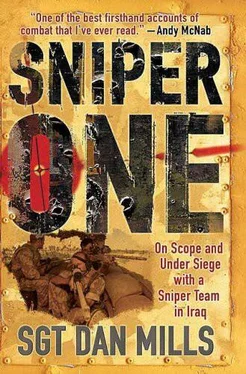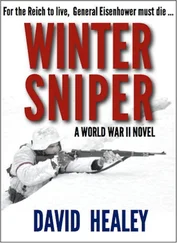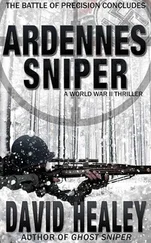We’re not flash, and we’d hardly been in the news in the last thirty years before that — except of course when we took on Princess Diana’s name during the amalgamation. But that all ended soon enough too when she died five years later. None of that is to say that we weren’t a bloody good fighting force of men, and one of which I was proud to be a member. A lot of the line regiments were just like us. None of us had been given the chance to prove our worth for so long, the MoD had begun to think we didn’t have any worth.
I was thirty-six years old. I’d been a soldier for eighteen years and a sniper for ten. I’d done six tours of Northern Ireland, one of Kosovo, and one of Bosnia — and I still hadn’t fired my rifle in anger once. Anyone who had been to Northern Ireland in the 1980s and 1990s had their hair singed by a few IRA bombs. But not actually being shot at by an enemy standing right in front of you, and not getting the chance to shoot back, used to make me question whether I could ever call myself a real soldier.
I grew up in a village near Slough in Berkshire, the second child of four. I joined the army as a boy soldier aged sixteen in 1984 after some recruiter popped a leaflet through my letterbox, and I joined the Queen’s Regiment — my local county regiment — because that’s what the sergeant at the recruiting office told me to do. Service is a bit of a family tradition with us. My younger brother is an engineer in the army too. And my sister was a signaller until she got out to join the police. Our dad was a fireman, and served alongside two of his brothers in the same fire station. My mum was a BT operator, and my grandfather was in the Royal Engineers.
I’ve been married and divorced twice and I’ve had three children — two daughters from the first and a son from the second. The army and marriage don’t go particularly well together because you’re never really there. I got out in 1998 for eighteen months because I hated being away so much. But when I realized I hated civvy street even more, I signed up again.
I’ve never been much of a barrack room soldier who enjoyed all the dressing up and all the formalities that go with that. In fact, my idea of hell would be to be a guardsman outside Buckingham Palace. But I’ve always loved being out in the field, doing the job I’m paid to do. That’s why I became a sniper. It’s about taking professional soldiering to another level.
As the commander of the battalion’s Sniper Platoon, I’d be the first to admit that I’ve got pretty high standards. I certainly don’t suffer fools gladly. But if they’re good soldiers, I’m fairly relaxed and give them a lot of rope.
We were all well aware that Iraq was all about nation building now, not war fighting. But we were still over the moon. We were just chuffed to bits that, for once, we were going to get our turn. It wasn’t the Balkans and it wasn’t Northern Ireland. Who knows, we may even finally get the chance to use the blinking weapons we’d trained so hard with for all those years.
The patch the battalion had been allotted was Maysan, the northernmost extremity of the poor Shia south under British control. Its capital, which would be my company’s responsibility, was the town of Al Amarah. I’d never heard of the place, but it sounded properly Iraqi and that was good enough for me.
The battalion consisted of four companies. Three of them, A, B and C, cut about in tracked Warrior armoured personnel carriers, because we are an armoured unit. And then there was us, Y Company — the battalion’s 106 support weapons experts. Y Company itself was organized into four platoons: mortars, anti-tanks, reconnaissance and snipers.
I had only recently returned to the battalion from doing an instructor’s job at the Infantry Training Centre in Catterick. And as soon as we got the news about Iraq, it was my responsibility to get the platoon battle ready for a serious operational deployment. I’d been a qualified sniper for twelve years and had served in the platoon on two tours previously. Now I was in charge of it — my dream job.
Sniping is one of the hardest jobs in any infantry unit. It’s one of the toughest trades to qualify for, and British Army snipers are the best in the world. That’s the other reason why I wanted to be a sniper. I wanted to be the best.
The platoon was fifteen-strong in total, all of them qualified snipers: one sergeant (me), three full screws (corporals), three lance jacks (lance corporals) and eight toms (privates).
When I took over the platoon, I’d decided it needed some shaking up. So I ran a reselection course which gave me a chance to bin all the blokes who weren’t up to scratch. Literally dozens applied, because it’s the best job in the unit. I could afford to be pretty ruthless, and really get the very best. By the time I had finished with them, they were a gleaming bunch of lads too. I’d hand-picked the fourteen best killers in the battalion.
The difference with being a sniper is you can see the man’s face when you kill him. You can see everything about him, because you’ve probably been studying him for minutes, or even hours. So when you pull the trigger you have to be able to separate yourself from the knowledge that you’re taking a life. There’s no point in putting someone through eight weeks of highly physically and mentally demanding training if when the moment comes, all he’s going to do is think about the wife and kids the target might have at home. He may well be a father of eight, and have four grandparents to feed too. But he’s the enemy and that’s that. Tough shit.
You can’t teach people how they’re going to feel when it comes to that moment. Which is why selecting the right character for the job is so important. If they’re half decent soldiers, they should be fairly good shots anyway. So you look for mental toughness and stamina above anything else.
A sniper has to be a bit of a hunter at heart. He has to enjoy the tracking down and the kill. You can’t be thick either, because there’s a lot of information to learn and a fair few calculations to carry out. Just judging distance well is a bloody hard thing to do.
Pulling the trigger and hitting the target is only one small element of it. You’ve also got to be good at getting in and out of the right place without being seen. Otherwise, you’re going to get killed too. That means putting up with a lot of discomfort and pain. You’re going to be lying in a hole full of water for days on end. Or in a cramped attic, or an exposed rooftop. You’ve got to be used to being wet, tired, miserable and dirty. And you’re going to have to have a dumper truckload of patience.
We soon became a very close-knit bunch. Snipers always stick together because we think we’re better than everyone else. We also encourage resentment. Sniping is a black art that few understand and even fewer are any good at, and that bothers them. But it just made us closer as a unit. A lot of the boys were so proud of who they now were, they went out and got a tattoo of the sniper’s classic logo, a pair of crossed rifles with an S above them, on their biceps.
We never used anything other than first names for each other. None of that ‘sir’ bollocks for us. Everyone in the platoon had a nickname. Mine was ‘Monk’ on account of my thinning pate. The cheeky sods. The average age of the platoon was twenty-four, so the blokes were a few years older and more mature than the average squaddie in a rifle company.
We also look different to everyone else. Our precision weapons immediately stood us apart. The main tool of our trade wasn’t the regular army’s 5.56mm calibre SA80 assault rifle, but the 7.62mm L96 — a single-shot, bolt-action sniper rifle. It’s known as the ‘long’.
We also prided ourselves on dressing scruffily. Even in barracks, we’d walk around without rank slides and looked generally unkempt, because that’s how we performed our special trade. We would patter around with our shirts hanging out, sleeves not rolled up and our hair and sideburns worn long. And we didn’t wear twisters in our trousers, which meant they extended down to cover most of our boots.
Читать дальше












